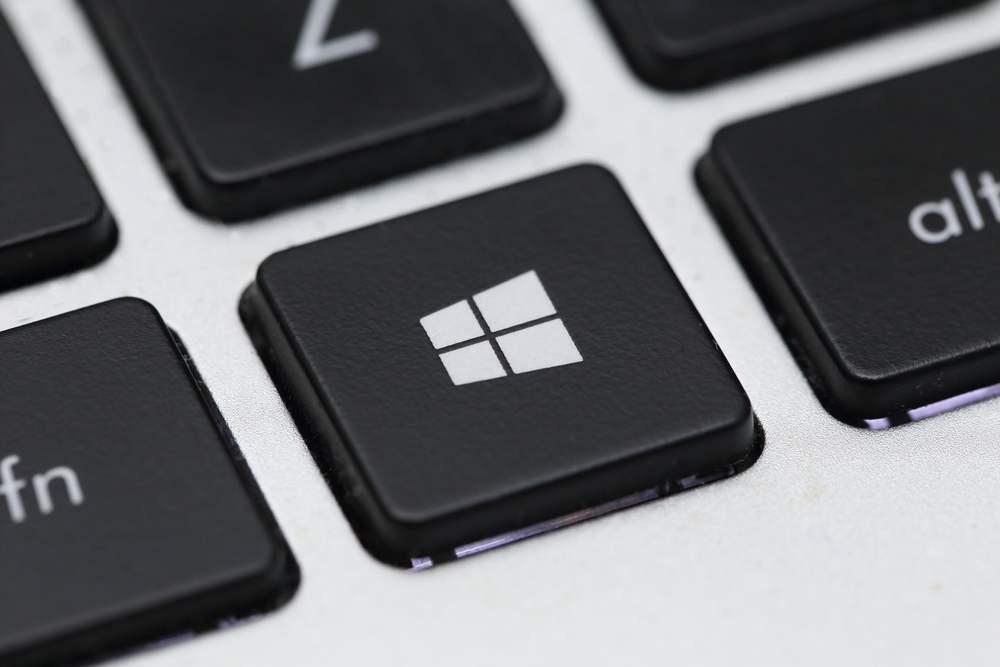
Windows 10 cumulative updates rolling out for Anniversary Update
The Windows 10 Anniversary Update hasn’t gone as smoothly as Microsoft would have liked. Despite extensive testing from Windows Insiders, users have reported problems with the OS causing their systems to freeze, reinstall previously removed apps, and kill webcams.
Microsoft is today pushing out two cumulative updates that bring the Anniversary Update to 14393.82.
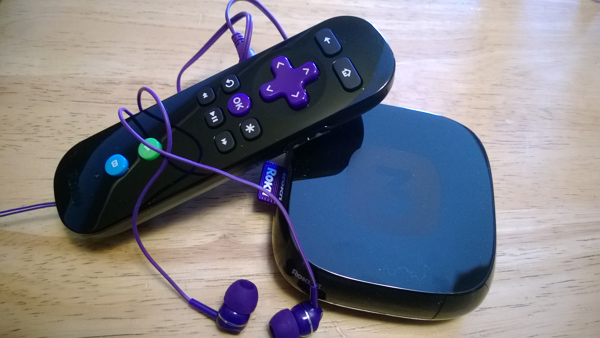
I've switched from Amazon Fire TV to Roku 3 and I like it... for now
Its been two and half years since I parted ways with DirecTV. It wasn't them, I honestly loved the service, but I was paying for countless channels I never watched. I replaced it with Hulu Plus and Sling TV and now pay much less for fewer channels I don't watch. I have the same few I flick between, but without al-a-carte this is the best I can do.
Recently a system problem eliminated one of my options -- not the TV channels, but how I view them. I'd been predominantly using an Amazon Fire TV along with a Harmony remote. The remote stopped connecting to its hub and no fix I could think of worked. The batteries in my Fire TV remote were dead and I had no spare AAA ones lying around. Similarly, the Roku 3 batteries were also history, but I did have the required AA ones.
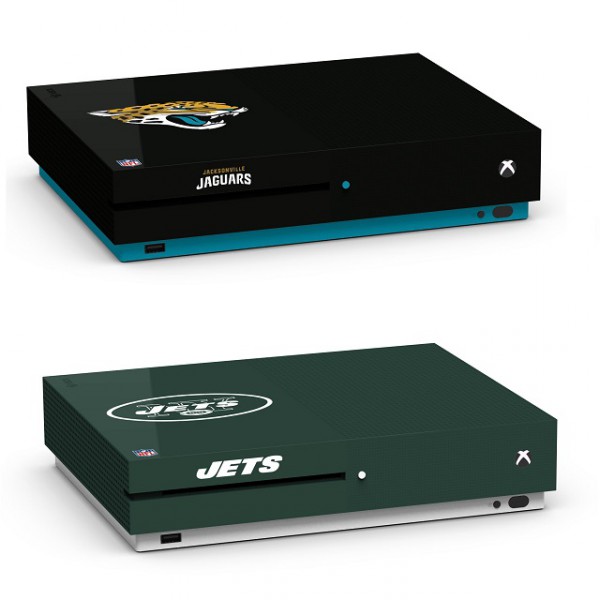
Microsoft launches 'Xbox One S Madden NFL 17 Custom Console Sweepstakes'
The Xbox One is the best console of the current generation -- according to me, that is. Of course, some folks -- such as my colleague Wayne Williams -- think that PlayStation 4 is best. This is hardly an argument that will end anytime soon. Look, the PS4 is cool, but Microsoft's console runs Windows 10, making it have, arguably, more potential -- am I right? Oh well, to each his/her own.
Microsoft recently released the more powerful and svelte 4K capable Xbox One S and I totally want one -- I am sure you, dear readers, want one too. Luckily, if funds are tight, you can maybe win one from the Windows-maker. Microsoft is giving away 32 customized NFL consoles -- each featuring the logo of one team -- which will be extremely rare. Why? Because they will not be sold -- the limited consoles are exclusive to this sweepstakes!
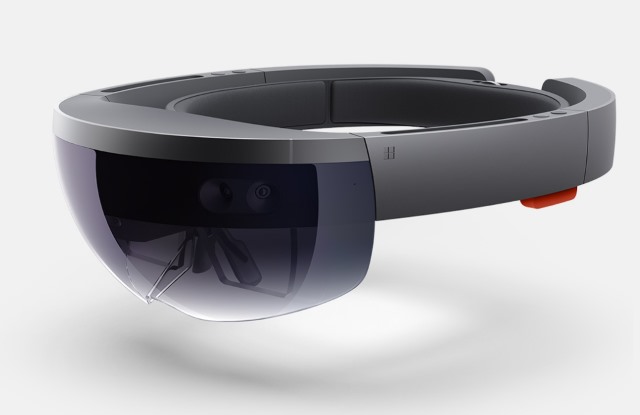
Microsoft reveals the secrets of HoloLens' specs, including a 24-core processor
At the Hot Chips conference this week, Microsoft has shed some light on the hitherto secretive specifications of its augmented reality HoloLens. Now that anyone with $3,000 spare is able to buy a headset, there's never been more interest in what's actually inside the case powering the AR goodness.
The holographic processing unit (HPU) at the heart of HoloLens is a seriously multi-cored beast. The Register reports that it is a "TSMC-fabricated 28nm coprocessor that has 24 Tensilica DSP cores". Of course, there's much more to the device than just this chip.

New tool helps cut Agile software project delays
Delays to software projects are frequently blamed on missed or misunderstood requirements. As companies look to ensure the successful delivery of Agile IT projects, they need tools that help ensure business needs are met.
Toronto-based Blueprint Software is launching a new Storyteller add-on for the JIRA bug tracking tool, that allows developers to automatically generate user stories, acceptance criteria and tests, ensuring that user requirements are properly addressed.

Opera VPN launches for Android, adds network security check
Three months after unveiling Opera VPN for iOS, browser developer Opera Software has launched Opera VPN 1.0 for Android. The Android build offers the same functionality as the iOS version -- secure VPN encryption to the web (with support for spoofing one of five countries), plus the blocking of both ads and tracking cookies. It also offers one extra feature not (yet) present in Open VPN for iOS: a tool for determining the security of the current network.
Virtual Private Networks provide users with a secure network connection over any internet connection, including insecure networks such as public Wi-Fi hotspots. VPNs can also be used to trick websites into believing the user is connecting from a different country to the one they’re in, helping bypass geographic restrictions.

The hidden security risk of privileged users
All businesses are aware of the danger posed by insider threats, but those threats are multiplied when they involve privileged user accounts.
Damage caused by privileged users is the most extensive, the hardest to mitigate and the hardest to detect as it involves authorized users doing things they are authorized to do. A new report from access management specialist Forcepoint in conjunction with the Ponemon Institute looks at the gap between organizations' awareness of the problem and their ability to solve it.

Track your AdSense earnings with Auburn
Are you earning so much with Google AdSense that you’re always online checking your balance? OK, probably not, but if you’re earning something then tiny Windows freebie Auburn could save you time by displaying your earnings in a system tray icon.
If you’re doing implausibly well, it’s possible to have the program check your balance on a regular basis, display a tooltip and play an audio alert when new money arrives.

Hacked: Epic Games forums
Reusing a password on multiple sites is a recipe for disaster. Why? Well, the password is now only as safe as the weakest site. For example, if you use the same user credentials for a shopping site that you do for a banking site, and the shopping site is hacked, your banking password is now exposed. Bad guys will try stolen credentials on various sites looking for where they might work.
Today, Epic Games, maker of popular games like Unreal and Infinity Blade, announces that its forums have been hacked. Now, if you don't reuse passwords, that isn't a huge deal, right? Sort of. True, your discussions about games might not be particularly sensitive, but you may still feel pain.

New Huddle release improves security and control
Business collaboration tools are increasingly essential in the enterprise, but they need to keep content secure, especially in professional services environments that handle sensitive client data.
Collaboration specialist Huddle is tackling this with the launch of its Unified Authentication Portal. Using a single sign on, this lets account managers apply policies across Huddle's web, desktop and mobile apps in one step, simplifying the process of keeping content secure.

Is it time to say goodbye to spreadsheets?
CFOs and Finance Directors have long been warned against the inaccuracies of spreadsheets when it comes to financial planning and analysis. However, as with everything in life, change can often be difficult to accept and this is often the case when it comes to businesses and their financial tools. Sometimes this is because they are reluctant to try something new, but alarmingly, more often than not, it is because the businesses are not aware of the different options available.
Research from Accountagility shows that 72 percent of CFOs consider their firms to be too reliant on spreadsheets. The larger the company, the more spreadsheets are deployed, and the greater the issues and headaches that occur. While Excel is clearly a central tool in many offices, businesses must also consider finance-friendly alternatives that address these risks whilst also respecting the need for control.

Acronis True Image 2017 adds Facebook backup
Acronis True Image 2017 has shipped with some welcome additions and enhancements. Incremental Facebook backup automatically archives your Facebook photos, videos, contacts, comments, and likes.
Expanded mobile support now allows wirelessly backing up iOS and Android devices to your desktop.
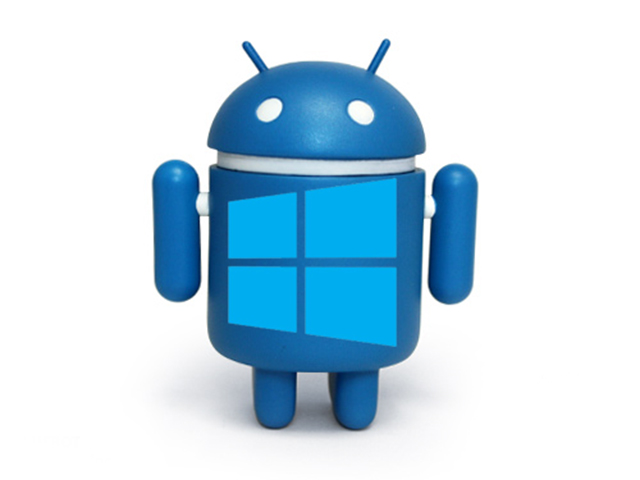
Microsoft apps will be pre-loaded on Lenovo and Motorola Android devices
There was a time when Microsoft was seen as the enemy of the Linux and Apple communities. Understandably, at the time, the company only wanted Windows to succeed. Nowadays, however, the operating system is sort of inconsequential. Microsoft seems happy to have its software succeed on 'competitor' platforms such as iOS, Android, macOS, Ubuntu and more.
Today, Microsoft announces that it has partnered with Lenovo on a new mobile initiative. The Windows-maker's productivity apps will be pre-loaded on Lenovo and Motorola-branded devices running Google's Linux-based Android operating system.
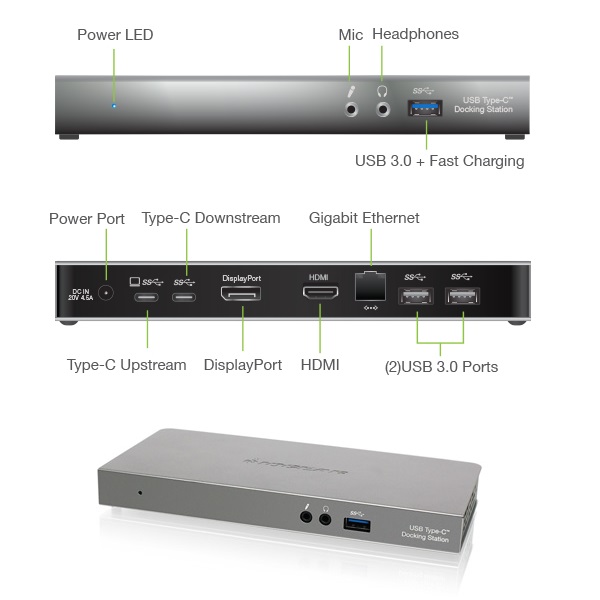
IOGEAR releases stainless steel USB-C Docking Station with Power Delivery
USB-C is a great connection type for docking stations. Using a singe cable, a compatible laptop or tablet can be turned into, what is essentially, a desktop/workstation. Best of all, this cable can often charge the device too.
Luckily for consumers, there is no shortage of these docks on the market. For example, StarTech.com and SMK-Link both released beautiful solutions recently. Today, IOGEAR releases its product, the 'USB-C Docking Station with Power Delivery' (model number GUD3C01). Rather than use plastic, the body is forged of beautiful stainless steel.
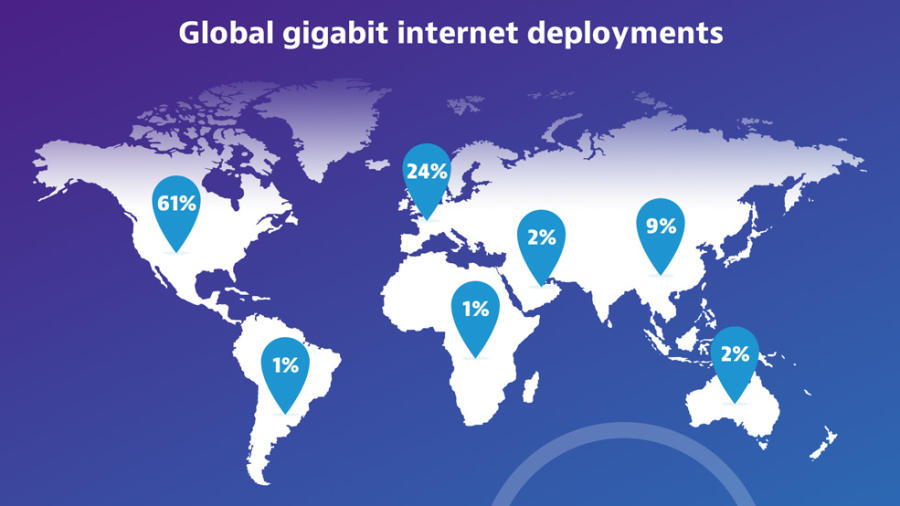
This is why gigabit internet is such a big deal
You’re watching the Game of Thrones episode you’ve been looking forward to all week, and just when you get to the pivotal scene, the stream cuts out, forcing you to adopt the salty language the show itself is known for. Your slow internet connection and your modem might face your wrath! Deep breath. Keep calm. Changes are afoot and internet connections are getting faster. How much faster?
Gigabit internet is the next generation of broadband technology and it is 159 times faster than the global average of 6.3 Mbps. A cross section of wired and wireless operators are all racing to deploy gigabit connectivity to feed our insatiable appetite for bandwidth. After all, Game of Thrones is renowned for building whole new worlds that were hardly possible on a television show just a few years ago, and communication service providers realize they’ve got to keep up.


